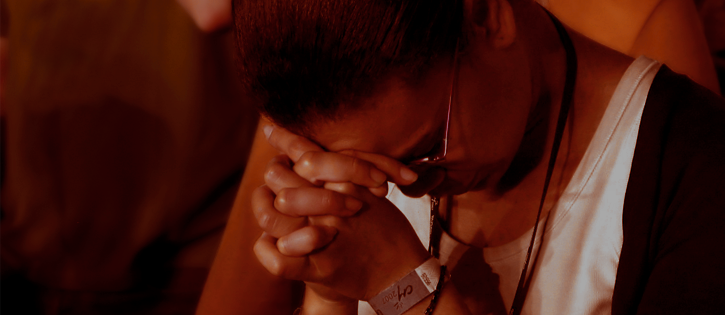Worship at TheJSG
What does worship look like at TheJSG? That certainly is a loaded question. You could say that worship is as diverse as the people attending, or that worship looks like a menagerie of movement and engagement. But that isn't quite fair to the reason why we worship. If we can understand the reason we worship, we can better label what worship at TheJSG looks like.
Most simply, it depends on what night you come to participate. You could come on a Monday night to experience a combination of evening Compline prayers practiced beginning in the 6th century mixed in with a bit of Taize music from the community founded in the mid-20th century. You could come on a Tuesday night to spend time praying on a walk through a labyrinth from the 11th century or participate in an antiphonal reading of the most modern Hebrew translation of the Old Testament in Spanish and English. You could come on a Thursday night to hear a full-on rock band playing covers of the top 10 most played songs in churches and modern renditions of tunes from Ralph Vaughan Williams or Charles Wesley.
The important question is: why does it look like this? Why does it look different each night and different than I've seen it done in the churches I've been to? For one, we're not a church. We're not required to be a 'church' that has an offering, a 3 point sermon, and Sunday school. Instead, we are able to focus on worship without distraction. That gives us ultimate flexibility. Does that mean that offerings or a sermon or Sunday school don't qualify as worship? NO! But it does mean that we don't have to offer all of those experiences each week like a church does. That allows us to have a much finer focal point. We can focus on teaching about worship without worrying that the bills aren't being met without a capital campaign. We can focus on dispelling the myth of ethnocentric worship without canceling the small group or Sunday school studies on the book of Esther. Moreover, we believe that worship will ultimately unite the universal church. Once we wrap our minds around the idea that worship isn't about us, but about Christ, we can start the hard work of bringing synergy and unity to a body who claims one head but many dismembered body parts.
We are on a journey together. We don't ask or expect that we will become your home church or replace your worshiping community. Rather, we hope that, as we worship together, you are able to go 'home' and turn your local community's focus from the body to the head. This simple motion (which can be harder than it sounds) will enable the church to bring the Kingdom of Heaven to Earth in a time where, more than ever, people need to know Jesus.
Welcome to the journey.
JF


